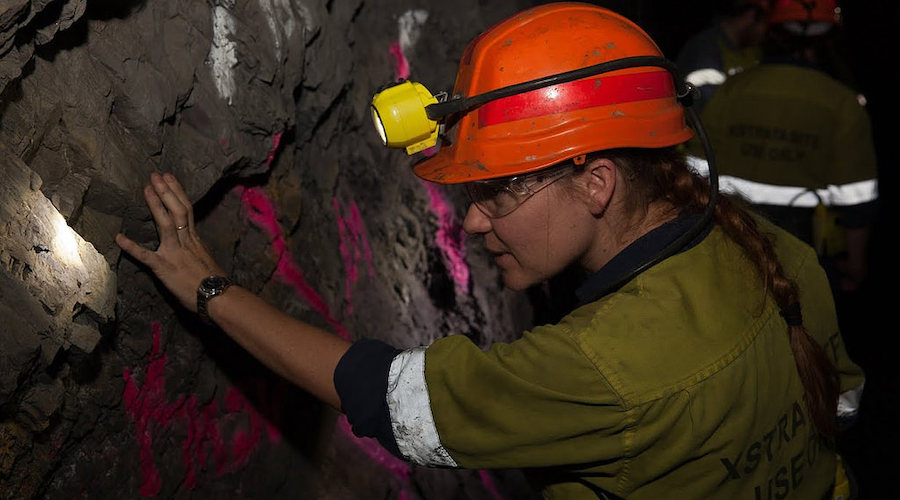
Anglo-Australian miner Rio Tinto’s admissions of sexual assault, racism and bullying in an internal report have sparked calls from investors for the entire industry to clean up its act.
An 85-page report released by Rio on Tuesday that pointed to a culture where harmful behaviours are often normalised and bullying is rife put a spotlight on the broader industry, which has long been accused of tolerating inappropriate behaviour.
“We …want to see the normalisation of a zero tolerance approach to sexual assault and discriminatory practices, in much the same way as we have for zero workplace fatalities,” said Camille Simeon, investment director at abrdn, a top-30 investor in Rio’s London-listed shares according to Refinitiv data.
“We are committed to holding investee companies to account on such matters…(and) expect that the findings of this report will motivate other boards into action,” Simeon said, adding that abrdn would follow up with Rio on the report.
Two other top-20 investors told Reuters they also planned to speak to the company about the report, but declined to comment further ahead of the meeting.
Pension fund Health Employees Superannuation Trust Australia also said it was writing to mining companies to ask how they are addressing similar potential issues.
Miners, who have struggled to attract female workers, even as they grapple with a labour shortage, have been trying for several years to change a “boys club” culture. Top global miner BHP Group has an “ambitious, aspirational goal” of achieving gender balance globally by 2025.
Investors and industry players gave Rio Tinto credit for publishing the damning findings from an external review but said others in the industry, and beyond, needed to act as well.
“It shouldn’t be left to Rio Tinto. This is an industry problem. It’s a society problem. It’s no good them solving the problem on their side and it continues elsewhere,” Greg Busson, the Mining and Energy Union’s Western Australia state secretary, said.
Rio Tinto launched the review in March last year, not long after CEO Jakob Stausholm took over the top job in the wake of a backlash over the company’s destruction of the 46,000-year-old Juukan Gorge rock shelters to expand an iron ore mine.
In the last year, 142 individuals had sanctions against them and 38 had their employment terminated, a Rio spokesperson said.
Activist investor group Market Forces said Juukan Gorge highlighted a culture of arrogance and other deep seated issues at Rio Tinto, which had bubbled to the surface through this report.
“The findings of this report demonstrate the need for increased and strong investor scrutiny of Rio Tinto and its governance practices,” said Will Van De Pol, asset management campaigner at Market Forces.
“Clearly there is a need to improve culturally at Rio Tinto and this is yet another moment that needs to catalyse further change, and that would be something that we would be really keen to see infiltrate throughout Rio Tinto.”
Tuesday’s report, which took nearly a year for an outside firm to complete and involved feedback from nearly a quarter of Rio’s 45,000 employees, provides a detailed disclosure of toxic workplace practices.
One female worker described being asked to perform oral sex on a male colleague. When the request was reported, a supervisor said he was sure the man was joking and Rio would “make sure you’re not alone with him.”
Another worker said pejorative name-calling of people of colour is routine and accepted as normal work site banter.
One female employee said she would not recommend Rio to her friends as a place to work, a stinging indictment of a company that has said publicly for years it aims to boost gender diversity. Women comprise 19% of Rio’s workforce.
“Other companies need to take this as a signal that the human element can’t be ignored,” said Katie Mehnert of Ally Energy, a networking group connecting workers with companies in the renewable energy industry.
“You can have the best assets on the planet, but if your culture is trash, who will want to work for you?”
Rio CEO Stausholm, who commissioned the report, vowed to push for change.
“As CEO, I own the culture,” Stausholm told Reuters. “Now I know what I know, and I clearly have an obligation to address it.”
Advocacy groups for women in mining and other extractive industries cautiously welcomed the report, which tacitly acknowledges what many in the mining industry have whispered about for years.
“We hope this example Rio Tinto is setting will foster dialogue and will make other mining companies follow suit,” said Barbara Dischinger, director of London-based International Women in Mining, a nonprofit that promotes gender equality in the mining industry.
BHP said it was committed to an inclusive and diverse workplace where people were respected. Fortescue Metals Group CEO Elizabeth Gaines said the miner had a “zero-tolerance approach” to harassment and bullying and all complaints were taken seriously.
Miners often work long hours in harsh environments for weeks at a time, living side by side in small camps with little privacy.
A Reuters reporter in 2018 witnessed miners, gathered for an industry convention, dropping their pants to sing karaoke in their underwear.
The perception of mining as hostile to women and people of colour has only exacerbated the industry’s talent problem, with enrolment in mining engineering programs plunging across the United States, Canada and Australia.
Employees in Rio’s report described immense stress and anxiety trying to avoid sexual harassers, harming their concentration and productivity on the job.
“It is clear there are significant challenges that need to be addressed both at the company level and across the sector,” said Louise Davidson, CEO of Australian Council of Superannuation Investors, which represents 37 asset owners and institutional investors which collectively own on average 10% of every ASX200 company.
(By Ernest Scheyder, Praveen Menon, Byron Kaye, Melanie Burton and Simon Jessop; Editing by Richard Pullin)
Comments